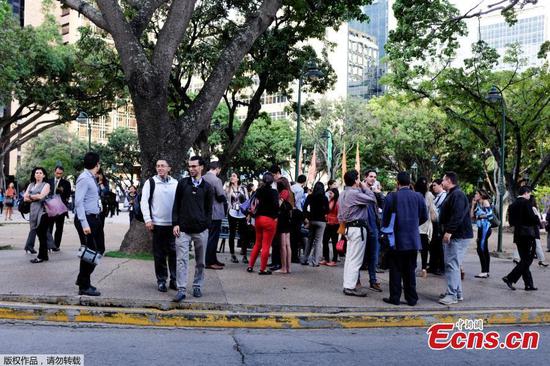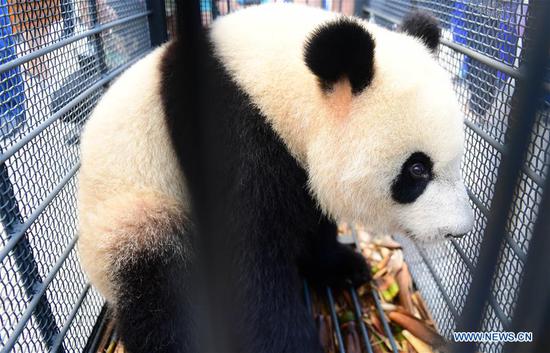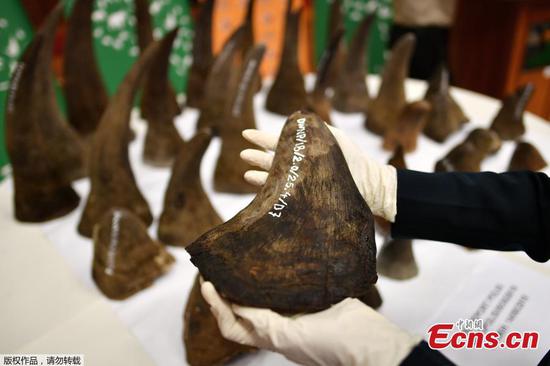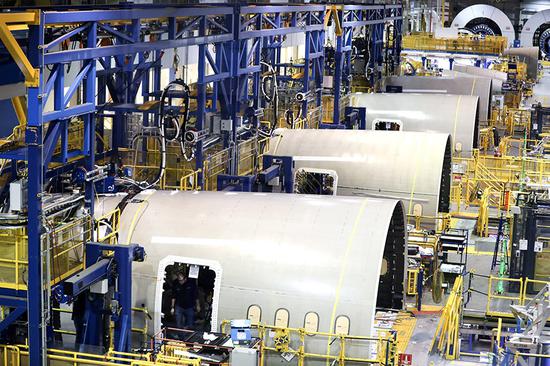
A Boeing factory in South Carolina, US, employs about 7,000 workers. China is Boeing's largest commercial market, with one in four planes delivered to Chinese customers. (Photo by Wang Ying/Xinhua)
Trade row forces Chinese importers to look to South America
The Peak Pegasus, a bulk cargo ship carrying 70,000 metric tons of U.S.-grown soybeans, was closely watched by millions of people on Sina Weibo on July 6 as it raced to the Chinese port of Dalian before China's 25 percent retaliatory tariffs took effect that day.
It failed to meet the deadline. The ship then remained at sea for a month, at a cost of $12,500 a day, before finally docking at the port in Liaoning province on Aug 11 and unloading its cargo the next morning.
Bringing in the shipment of soybeans worth more than $20 million incurred additional tariffs of about $6 million.
On July 6, China placed extra tariffs on $34 billion worth of U.S. exports, including soybeans, in response to U.S. President Donald Trump's decision to slap 25 percent punitive tariffs on $34 billion worth of Chinese exports to the U.S. the same day.
U.S. tariffs on another $16 billion worth of Chinese exports are due to take effect on Thursday, and China has promised to respond in kind.
Trump has also threatened to impose new tariffs on all $505 billion worth of Chinese exports to the U.S.
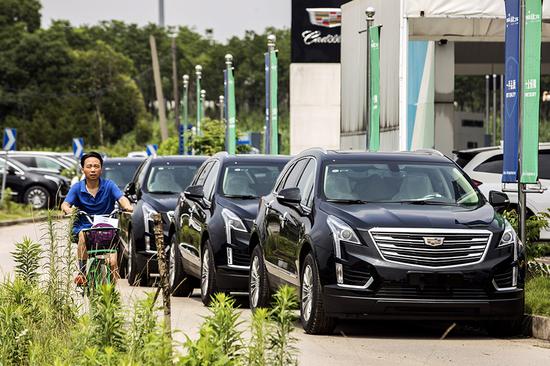
China is the world's largest soybean importer and about 60 percent of U.S. soybean exports go to the country. The U.S. is the second-largest soybean exporter to China after Brazil. Last year, China bought $12.7 billion worth of U.S. soybeans, mainly to produce cooking oil and animal feed.
The trade dispute has forced more Chinese importers to increasingly turn to exporters in South America, including Brazil, Argentina and Uruguay.
"As the largest importer of U.S. soybeans, China is a vital and robust market we cannot afford to lose," Davie Stephens, vice-president of the American Soybean Association and a Kentucky soybean grower, said in a statement in response to Trump's tariffs.
















